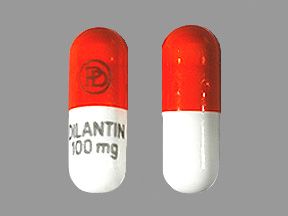Top Class Actions’s website and social media posts use affiliate links. If you make a purchase using such links, we may receive a commission, but it will not result in any additional charges to you. Please review our Affiliate Link Disclosure for more information.
According to news and medical reports, early diagnosis is crucial to Dilantin SJS survival. An early diagnosis of Stevens Johnson Syndrome (SJS) shortly after starting a prescription of the popular Pfizer anti-epileptic drug saved one woman from weeks to months in the hospital burn unit, which is the usual course of treatment for the majority of Stevens Johnson Syndrome victims.
When a patient develops Dilantin Stevens Johnson Syndrome, rashes begin to form on the skin and can quickly progress into a painful, burn-like state. As the SJS reaction becomes more severe, the topmost layer of skin cells die and fall off, exposing the deeper, more sensitive skin layers and the delicate mucous membrane to infection. Sometimes, the SJS reaction can even burn and affect internal organs. In extreme Dilantin-induced SJS, a patient may undergo so much trauma from the internal and external side effects of the skin reaction that they may die during hospitalization.
In 2008, a patient named Linda was prescribed Dilantin to treat her frequent temporal lobe seizures. However, just a few days after starting her Dilantin prescription, Linda’s doctor told her to stop taking the medication immediately. Linda had developed an SJS rash around her mouth that spread to her entire body.
When she began presenting Dilantin SJS symptoms, Linda states, “I broke out in this severe rash, it was all over me. My eyes were oozing and I got blisters all over my mouth, even inside my mouth and throat—this has been the most horrible pain imaginable.” Given the choice, Linda claims she would rather deal with seizures rather than undergo the full, painful extent of a Dilantin SJS reaction.
Shortly after Linda’s bout with Dilantin SJS, her doctor prescribed another anti-epileptic medication. However, her SJS experience has left Linda afraid to take any type of drug for fear of yet again developing this allergic skin reaction, which can be set off by any prescription or over-the-counter medication, even aspirin.
Over the course of a few months, Linda’s SJS rash slowly cleared up, but this did not mark the end of her ordeal with this painful skin condition. In addition to developing an SJS rash, Linda also suffered from joint pain and sudden and severe weight loss, SJS symptoms that she allegedly still suffers from to this day. She has contacted a lawyer and may be considering filing a Dilantin SJS lawsuit or joining a Stevens Johnson Syndrome class action lawsuit against the drug’s manufacturer.
Dilantin SJS Side Effects
Dilantin (or phenytoin) is a widely used anticonvulsant medication used to treat and manage seizures and epilepsy. Parke-Davis, a Pfizer subsidiary, created Dilantin in 1937 and eventually gained FDA drug approval for the drug in 1953. To many seizure and epileptic patients, Dilantin is considered a reliable anti-seizure treatment, especially given its 60 year history and use by many consumers. However, recent studies and news reports have linked Dilantin with several incidences of Steven Johnson Syndrome, which can lead to permanent health problems and even death.
Some symptoms and side effects of Dilantin Stevens Johnson Syndrome to look out for include:
- Painful blistering of the skin and mucous membrane
- Flu-like symptoms and high fever
- Skin sloughing off
- Eye problems including severe conjunctivitis, iritis, palpebral edema, conjunctival and corneal blisters and erosions, and corneal perforation
There are currently over 100 Dilantin SJS lawsuits awaiting trial in federal courts across the nation. More patients or the families of Dilantin SJS patients may choose to file Dilantin SJS lawsuits or join Dilantin SJS class action lawsuits.
Do YOU have a legal claim? Fill out the form on this page now for a free, immediate, and confidential case evaluation. The SJS attorneys who work with Top Class Actions will contact you if you qualify to let you know if an individual lawsuit or Dilantin class action lawsuit is best for you. [In general, Dilantin lawsuits are filed individually by each plaintiff and are not class actions.] Hurry — statutes of limitations may apply.
ATTORNEY ADVERTISING
Top Class Actions is a Proud Member of the American Bar Association
LEGAL INFORMATION IS NOT LEGAL ADVICE
Top Class Actions Legal Statement
©2008 – 2024 Top Class Actions® LLC
Various Trademarks held by their respective owners
This website is not intended for viewing or usage by European Union citizens.
Get Help – It’s Free
Help for Victims of Stevens Johnson Syndrome
If you or a loved one were diagnosed with Stevens Johnson Syndrome (SJS) or toxic epidermal necrolysis (TEN) after taking a prescribed or over-the-counter medication, you may be eligible to take legal action against the drug’s manufacturer. Filing an SJS lawsuit or class action lawsuit may help you obtain compensation for medical bills, pain and suffering, and other damages. Obtain a free and confidential review of your case by filling out the form below.
An attorney will contact you if you qualify to discuss the details of your potential case at no charge to you.
Oops! We could not locate your form.













